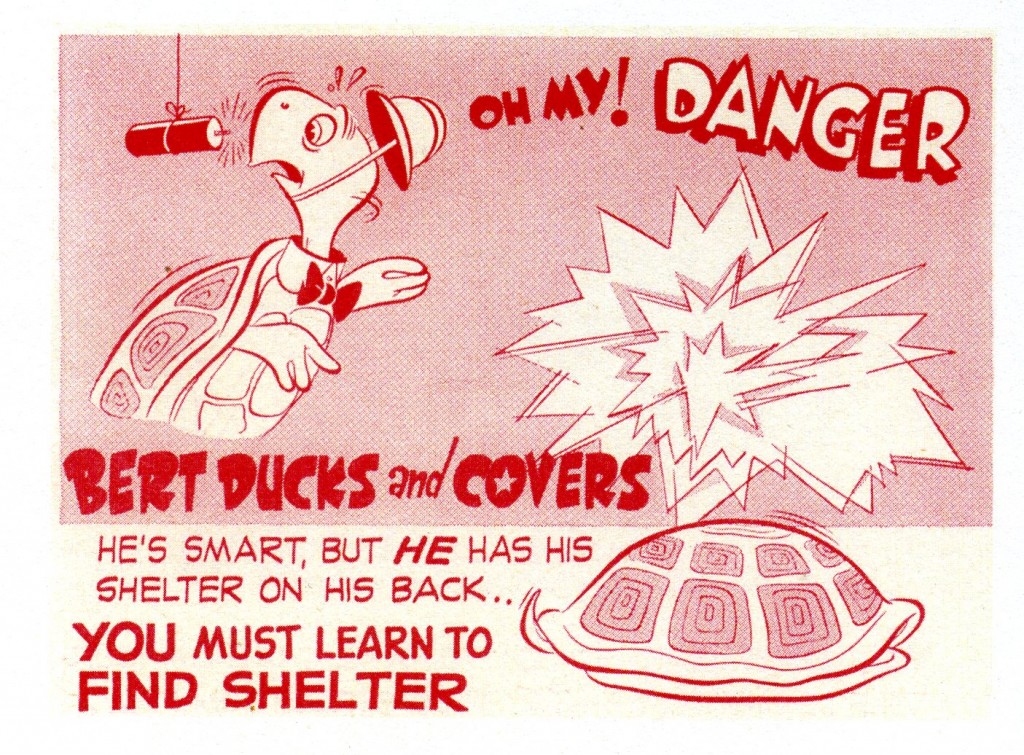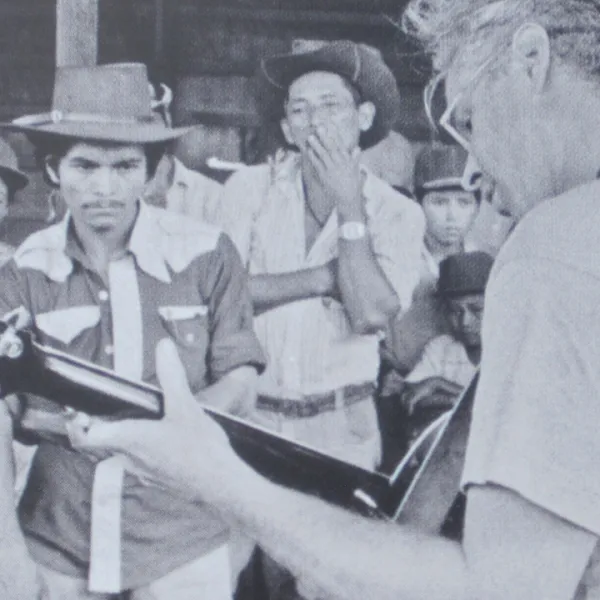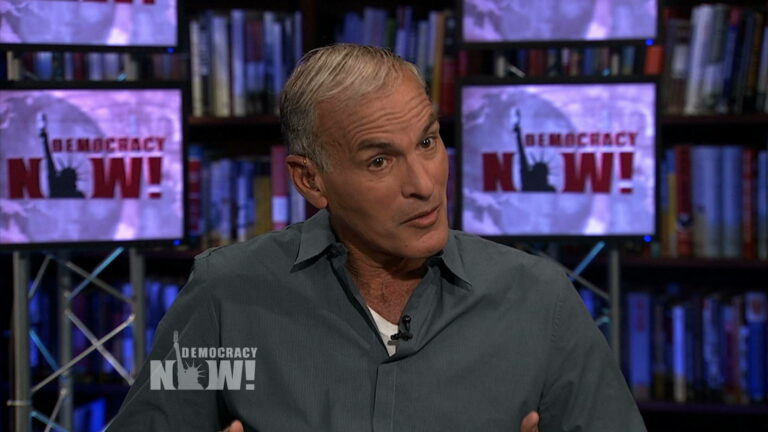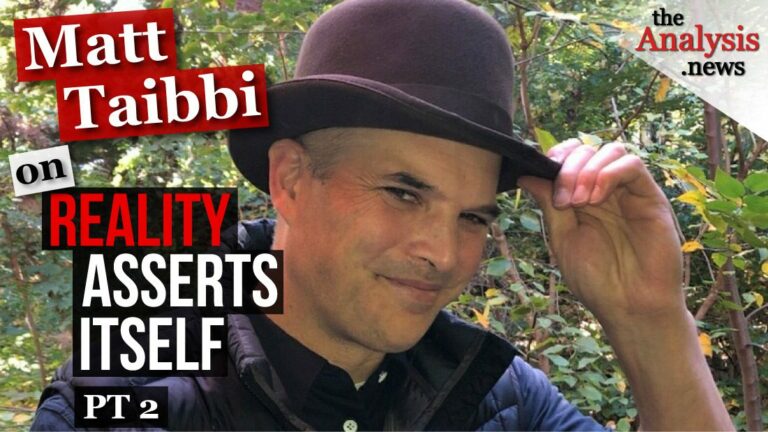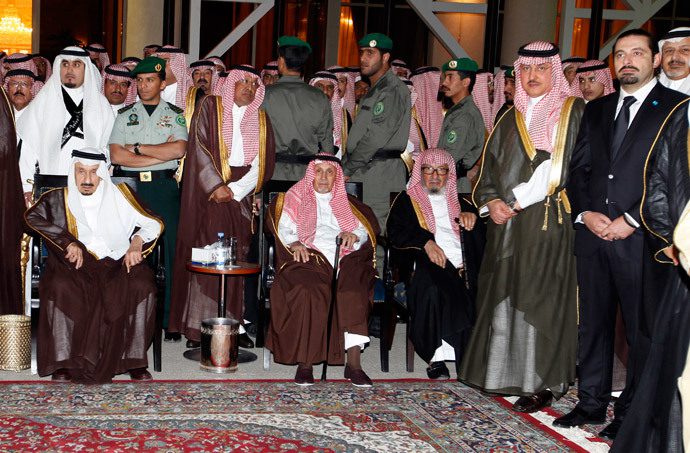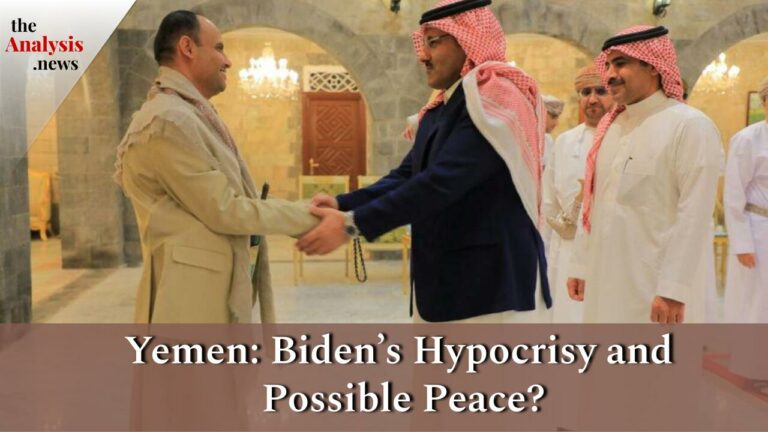Culture of the National Security State – Deepa Kumar on Reality Asserts Itself (pt 5/5)
This interview was originally published on October 19, 2014. Dr. Kumar tells Paul Jay that a culture of fear and obedience has developed so we give consent to Cold War policies, to hot wars, to the complete militarization of society.
PAUL JAY, SENIOR EDITOR, TRNN: Welcome back to Reality Asserts Itself. I’m Paul Jay. This is The Real News Network. And we’re continuing our discussion with Deepa Kumar, who joins us now in studio.
Deepa is an associate professor of media studies at Rutgers University, also serves as an officer in the union there. She’s written many books. One of the most recent is Islamophobia and the Politics of Empire, but coming soon is Constructing the Terrorist Threat: The Cultural Politics of the National Security State.
Thanks for joining us.
DEEPA KUMAR, ASSOC. PROF. MEDIA STUDIES AND MIDEAST STUDIES, RUTGERS UNIV.: Thank you for having me.
JAY: So what is that, the cultural politics of the national security state?
KUMAR: Well, you mentioned a show that you grew up with–being a communist for the FBI. And essentially what I’m looking at is the birth of the national–.
JAY: Just quick, that was in the last segment, so if you didn’t watch the last segment, you should.
KUMAR: Yes. So if you look at–I’m looking at the Cold War period, the post-Second World War period, and the emergence and the birth of the national security state after the National Security Act of 1947, which creates the CIA, the Joint Chiefs of Staff, and then the NSA in ’52, and so on. And there is a wholesale militarization of American society. Every aspect of American life, social, intellectual, political, and so on, it gets militarized in this way.
And the question is: how does that become acceptable? And culture is very important in terms of understanding how that happens. And so you have these security rituals, right, the Civil [Defense] department drills, the kind of “duck and cover”. Bert the Turtle teaches a whole generation–.
JAY: I did that as a kid.
KUMAR: Did you? Okay.
JAY: Oh yeah. I had to go hide under my desk. Yeah.
KUMAR: Right. And, of course, you think about what is the point of a ritual like that. If a nuclear bomb goes off near your school, a desk isn’t going to protect you.
JAY: No? They told me it would.
I was once on a plane with a guy, and he told me–he’s in uniform, and I said what’s your job? He says, I go around to military bases training people what to do in the case of a nuclear war. And I said, really? What you do? He says, well, I tell them they have to squat. They find wall. You have to squat behind it, put your hand over your eyes, put your head between your legs, and kiss your ass goodbye.
KUMAR: Yes.
JAY: They never told us that in school, though.
KUMAR: But the whole point of a security ritual is to cultivate fear and obedience. So you give your consent to Cold War policies, to hot wars, to the complete militarization of society. And so I want to look at those sorts of drills, the various shows, the propaganda work overseas as well as domestically, but build it up to the present, because after 9/11 you see a strengthening of the national security state. And if we had “duck and cover” back then, we have see something, say something, which is the idea that you’ve got to be suspicious of anyone and anything, and you see and you text. That’s the new ritual. And it again cultivates a sort of obedience to the national security state and all the draconian things that are being done–surveillance, drone strikes, you know, all the rest of it–which otherwise would be unacceptable if it weren’t for these various cultural practices that make it so.
And that’s how to think of Homeland as well, which is–.
JAY: The TV show.
KUMAR: Absolutely. I mean, you think about the first season, and Carrie has conducted this illegal surveillance operation of Brody. She even has a camera in his bathroom, right? And all that is justified because eventually–and spoiler alert–we discover by the end of the first season that he is a terrorist. So yay! And that’s really the work that this show is doing is justifying the practices of the national security state.
JAY: It’s like 24. And, in fact, some of the same people that make Homeland made 24,–
KUMAR: Exact same people.
JAY: –which was to show that torture actually does elicit useful information, even though so far all the evidence is it does not.
KUMAR: Yes. But there’s a difference between the two shows, though, because if 24 was about a more Bush kind of shoot ’em up and torture ’em kind of style, this is a much more sophisticated show in that it relies on intelligent people, like the head of the CIA, Saul Berenson, who because of his cultural knowledge of the Middle East, because he follows football in Iran and so on, is able to piece together various clues. And he is in some ways a reflection of the so-called smarter war that Obama is launching. And really that’s what Obama does is he–.
JAY: Smart power.
KUMAR: Yes. He rejects the worst sort of racist aspects, rejects the clash of civilization, and uses liberalism and multiculturalism to advance and to deepen the national security state in many ways.
JAY: The origins of the national security state, I mean, it begins in World War II, except they don’t demobilize. They go from World War II right into a kind of World War III, the Cold War with the Soviet Union. But it’s somewhat a little different than what’s happening now, in the sense that it seems to me that the leaders of the time and–Truman and such, they really did see the Soviet Union as an existential threat, partly because it isn’t too long before the Soviet Union has nuclear weapons.
Now all of a sudden–you know, America thought it was going to be the thing after World War II. There would be no one else on the planet to rival. And all of a sudden you have a rival. But not only you have a rival; you have what at least is perceived as a socialist rival. You have the beginnings of an enormous population not within the capitalist world. Not too many years later you have China. Now you have, what, almost half the population of the world not within the capitalist world. And this–I don’t think–I mean, we’ve talked to people like Ray McGovern, who was briefing the White House during this period, and he was doing [it] to Reagan and others, and then before Reagan, and they were telling them, listen, the Soviet Union is not going to attack the United States, it’s not that kind of a threat.
KUMAR: And mutually assured destruction, right?
JAY: Well, partly that, and partly there’d just be no reason for it. Well, how could the Soviet Union gain anything by attacking the United States?
But the underlying reason for this state is they’re terrified of the spread of socialism around the world.
KUMAR: Absolutely. And therefore the Cold War is not only a sort of war that involves the setting up of bases and spheres of influence and all the rest of it, so as to prevent larger parts of the world from the domino theory, right, which is that the Soviet Union was going to collect larger and larger portions of the world and so on. So it was about that. But it’s also about ideology. It’s about presenting American capitalism and the free enterprise as being the same as free speech, as being the same as individual liberty and human rights and all the rest of it. Right? So it was in that sense both a war in terms of a militaristic war, an international policy, as well as a bolstering of a certain notion of what kind of society–a capitalist society–would actually realize the dreams and aspirations of individuals.
JAY: And so you create this massive machine, which is really about global dominance. And certainly for many years, until you start to have the–you know, the Soviet Union starts to implode and China starts to transition to capitalism. That kind of threat clearly isn’t there anymore. But you–.
KUMAR: But then the terrorist threat comes along. And, actually, the terrorist threat, interestingly enough, the word terrorism never used to be used in the U.S. up until the late 1970s. One study of presidential speeches all the way up to the middle of the 1970s finds that the term was rarely used. It’s not to say that things that are today called terrorist, such as hijackings of airplanes or kidnappings or what have you didn’t happen, but the people who carried out these acts were called air pirates, sky parents, bandits, rebels, and so on.
But there’s a process through the 1970s–and Israel plays a part in this–in terms of defining who the terrorist is. And in the 1980s, in fact, you see this novel theory come into being, which is that terrorists are in league with the Soviet Union, the Soviet Union sponsors an international network of terrorists, and therefore the West should not only fight against the Soviet Union, but it should also be ready to take on the terrorist threat. And, of course, after the collapse of the Soviet Union–.
JAY: The baton gets picked up by Iran, supposedly.
KUMAR: Right. Exactly.
But after the collapse of the Soviet Union, it’s not immediately the terrorist threat. You have this idea of rogue states, failed states, and a whole bunch of enemies, and so forth. But 9/11 becomes the pivotal moment around which the war on terror can be launched, which in many ways is analogous to the Cold War. You have this enemy. Of course, it’s not the same kind of enemy. You know, terrorists don’t have nuclear weapons and all the rest of it. But nevertheless, it’s the kind of ideology that’s needed to justify war, intervention, and global domination.
JAY: And 13 years or so after–of war on terror, we get something more robust than al-Qaeda ever was, apparently, the Islamic State. What do you make of the media depiction of Islamic State, how this is being dealt with?
KUMAR: I mean, if you look at the ivery fact that there is a group like Islamic State and that it poses a threat to the United States, you can say one thing, that the world war on terror has has failed, right, because if it was working, these groups would be dissolving and so on. And so they’re not. But we have been so primed over the course of the 1980s, the 1990s, and so forth with Hollywood films which consistently show terrorists as brown people, as Middle Eastern people–. And there’s a whole slew of films from Cannon–this is a company that two Israelis create in which they consistently–they put out dozens of films in which Palestinians fighting for national liberation are seen as the bad guys and so on. And so that’s the steady diet on which a whole generation of Americans have grown up, automatically seeing brown people and Middle Easterners and so on as being terrorists. And so by the time we come to 9/11, we’re so primed to think of these people as just being these horrible individuals that we need to go off and make war on them.
And it’s not just culture. It’s even in the news media sphere, right? Remember after the Oklahoma City bombing, when Timothy McVeigh, a homegrown terrorist we later discovered is responsible for it–. The immediate response, however? Middle Eastern. Right? And this was back in the 1990s, when the Oklahoma City bombing takes place. Before it was discovered who the perpetrators are, all of the talking heads, these so-called terrorism experts, are saying this is Middle Eastern, it has Middle Eastern marks all over it, and so forth. So that’s sort of been the evolution, which then gets ratcheted up post-9/11.
JAY: One of the things Homeland‘s been critiqued about and shows like Homeland, and 24, for that matter, is that it justifies mass surveillance of mosques and Muslims in America. But isn’t that kind of understandable? I don’t mean the shows. But, I mean–and, frankly, that is where–if there’s a terrorist threat right now, there’s some from right-wing organizations. And in theory we hear about the arrests. And there is surveillance of them as well. And as far as I know, the FBI has people looking into some of the far-right militias and such. But that is–unless this is all stereotyping from shows, then it worked on me, because as far as I understand it, there is stuff going on in a few mosques. Now, I know it’s a tiny sliver of mosques, it’s a very small, marginal number of mosques, and what we’re given the context for is mass surveillance of everybody in every mosque, but there’s not like there’s no basis for it.
KUMAR: Well, the way this can be done in a way that is fair and that is constitutionally valid is if there is sufficient grounds to suspect somebody, then institute some form of surveillance, right? And, actually, it’s in response to the sort of complete, indiscriminate surveillance that we saw in the 1960s against all kinds of people, from Martin Luther King to Jane Fonda and so on, that some restrictions were actually placed around who you can surveil and so forth, and there had to be some basis for suspicion. That has been completely done away with in the post-9/11 context. And now, if you’re Muslim, you’re automatically suspicious. And if you see the theories of radicalization that the FBI, the NYPD, and so on operate around, they have, like, a four-stage or five-stage process where just being a Muslim puts you on the first stage; and then you happen to be religious, you start growing–you know, if you’re a man and you start to grow facial hair and wear religious clothing and so on, you’re automatically on a fast track towards jihadism. And that is ridiculous. You know, that’s such a violation of people’s religious freedom rights.
And the end result of that is that you’ve seen a massive infiltration. For instance, in New York, the NYPD Demographics Unit has people all over, not just in New York City, but in the entire Tri-state area, infiltrating college groups, infiltrating mosques, bookstores, and so on, and keeping detailed records of what people do, how they live their lives, which is such a violation of your privacy, not to mention that it creates such a chilling effect on free speech and all the rest of it. You know, I have students who say, I’m so scared in terms of who to trust who not to trust, because I know that there are agents in our midst. That’s not the way in which a free society should treat its citizens.
JAY: Well, this is what I go back to that I said in the last segment. I understand the logic of doing this, I understand systemic surveillance, I understand infiltrating mosques and all the rest, because if you’re going to be a marauder abroad, you’re going to have to have a police state at home.
KUMAR: Yes.
JAY: So if you won’t question your role in the world, if you just leave that off the table, then, yeah, you’re left with these kinds of policy options, because people legitimately want to come and get you. But you’ve got to kind of add that to it, because–.
KUMAR: No doubt, because actually the current surveillance practices that we have today come out of the U.S. occupation of the Philippines. And Alfred McCoy has a book–.
JAY: You’re talking late 19th century.
KUMAR: Early 20th century. Right after the Spanish-American War of 1898, the U.S. goes off and occupies the Philippines. And Alfred McCoy has a book, called Policing America’s Empire, in which he talks about this constabulary unit that’s formed in–American unit that is formed in Manila which uses things like, you know, recruits a bunch of informants, which uses things like spread disinformation about the leaders in the Philippines who are fighting back against American occupation, and so on. And those things come back home and inform the kind of surveillance practices that we have right here. So there’s always absolutely–empire is not just something that happens elsewhere; it happens right here.
And I think the key thing that the American state is afraid of is that if people who live in this country, who have relatives who live in Egypt or in Iran or what have you, they will tell a very different story of what the U.S. has done in those countries and therefore have the potential to disrupt the propaganda narrative and feed into an antiwar movement. And they don’t want that, and therefore keep them scared, monitor them, police them as a way to stop this kind of information from getting out.
JAY: Okay. Thanks very much.
And thank you for joining us on The Real News Network.
“Deepa Kumar is an Indian American scholar and activist. She is a professor of Journalism and Media Studies at Rutgers University.”
